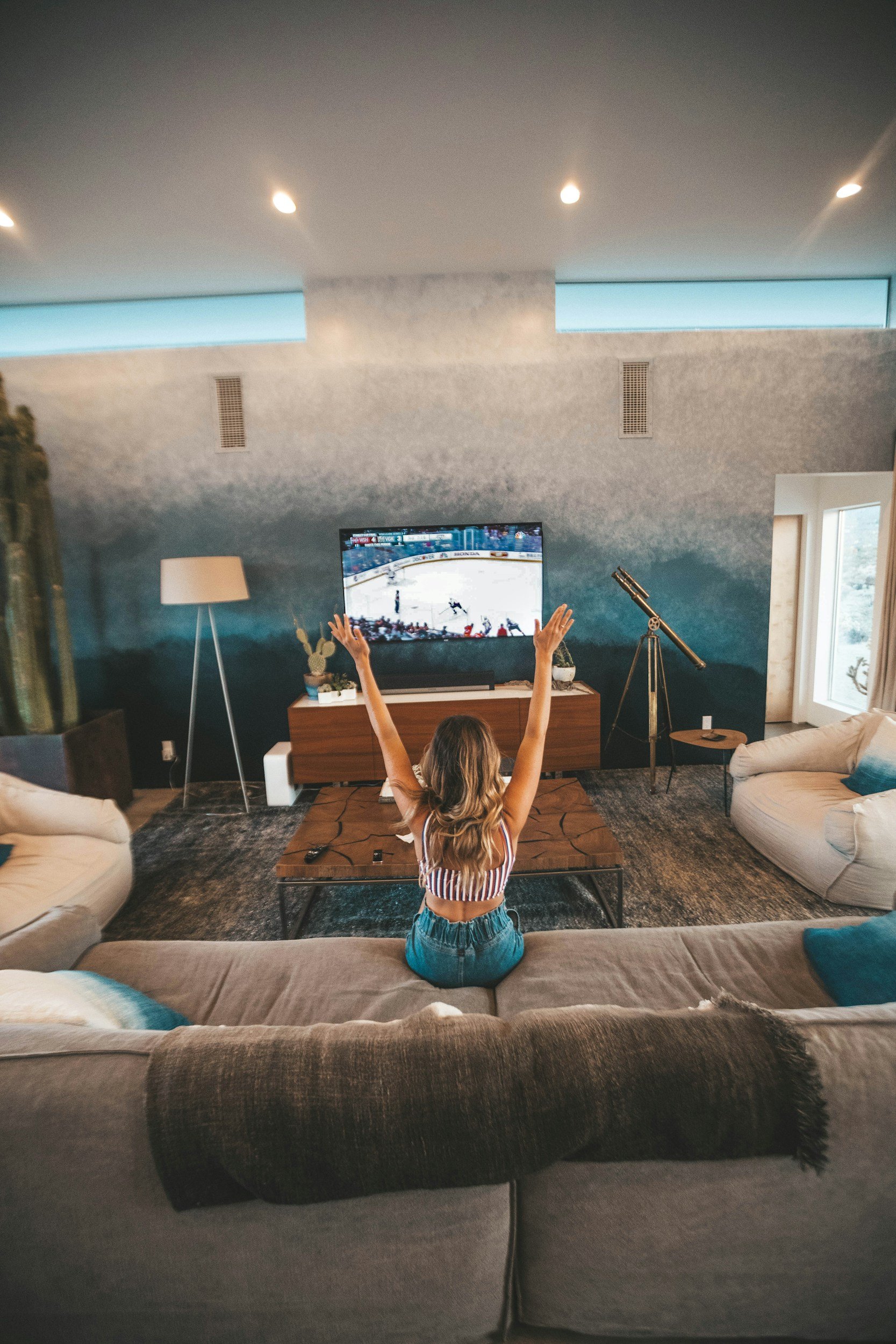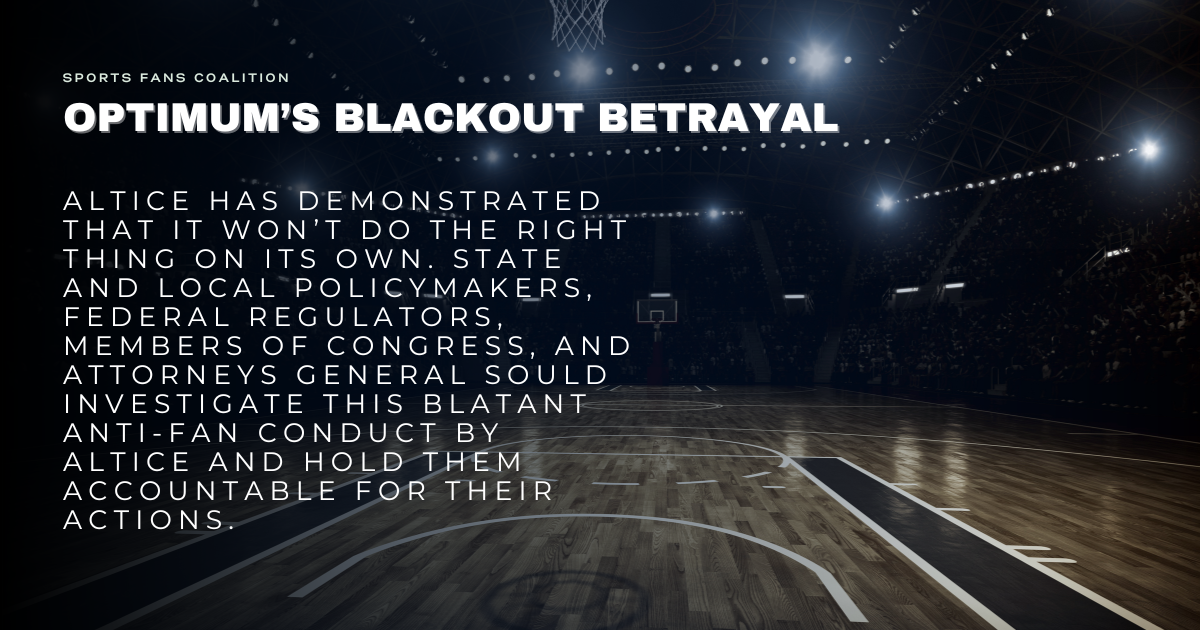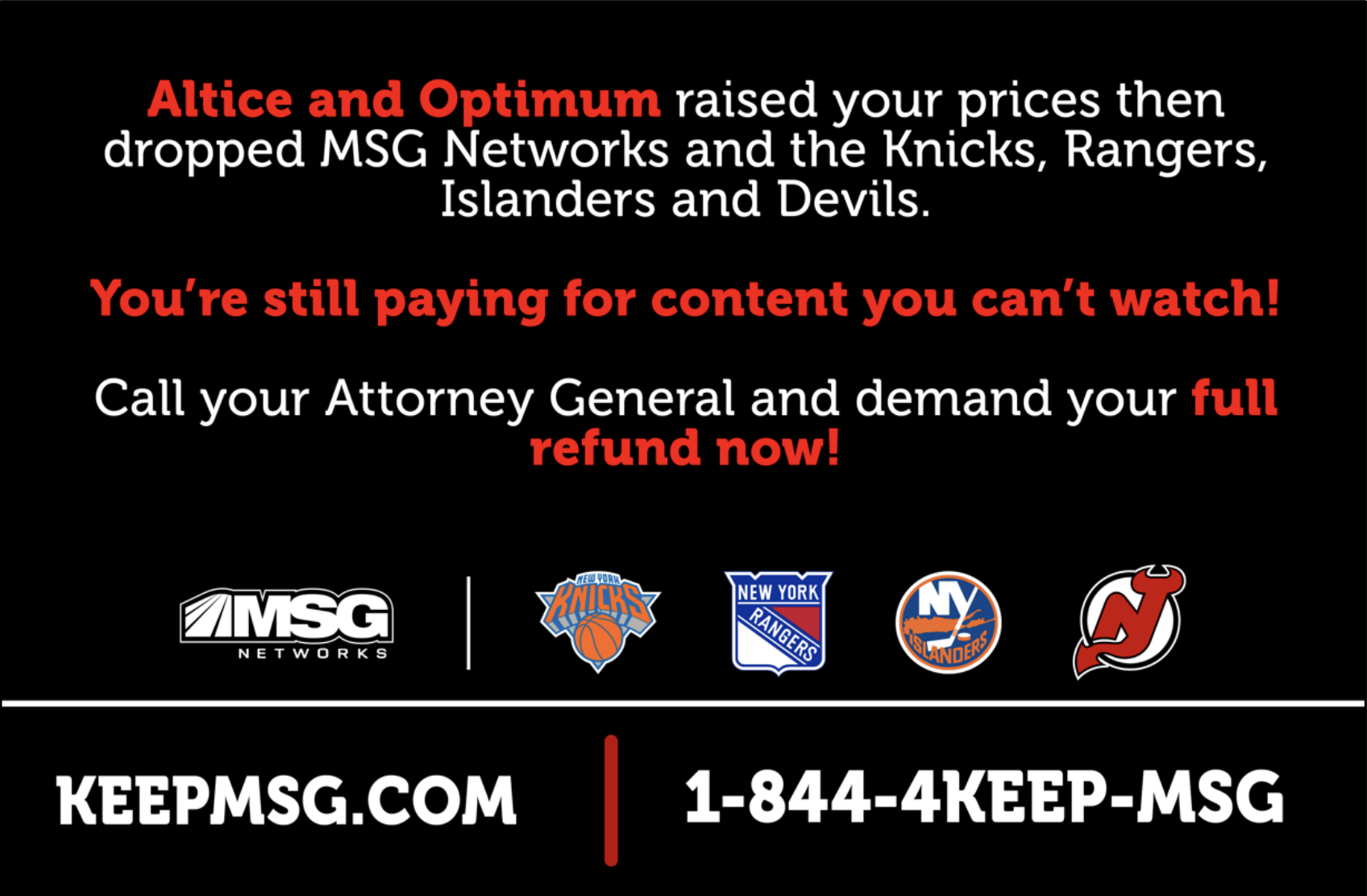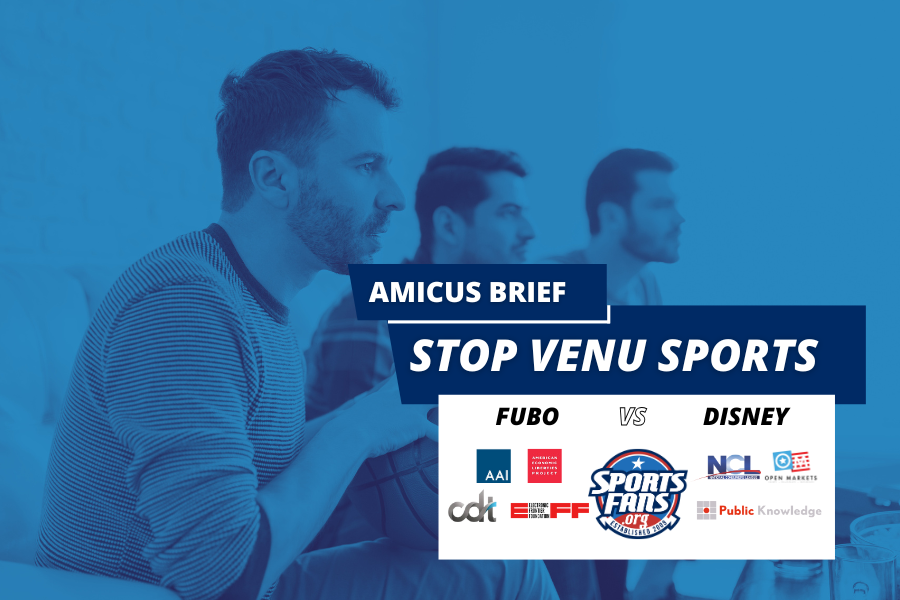
Media Access
Fans built most of the arenas and stadiums in this country. Fans own the airwaves that the leagues broadcast their games over. Fans buy merch, tickets, concessions, and so much more to support their fandom. And, fans even buy over-priced, bloated TV bundles to watch their team! So why are billionaires blocking them from enjoying the games from the comfort of their living rooms? Short answer: greed.
The long answer is a mix of monopoly power run amok, abuse of antitrust exemptions, arcane in-market/out-of-market television rights, retransmission consent negotiations, and self-dealing. Only a handful of companies hold the keys to your fandom, and they exploit that power to line their pockets at the expense of yours.
In 2014, SFC scored a majory victory for fans and overturned the FCC’s Sports Blackout Rule, which allowed sports teams to blackout broadcasts of their games if they did not sell enough tickets. While that solved part of the problem, there are still many more problems in the media landscape that need solving.
-
Starting back in 1975, the Federal Communications Commission’s Sports Blackout Rule required cable, and later satellite operators, to black out any game that a local broadcaster in any given market had to black out under league rules. The leagues, especially the NFL, imposed particularly anti-consumer local blackout policies. The NFL said that if a stadium did not sell out a few days prior to kickoff, the local broadcaster had to black out that game. This was designed to force fans to buy more tickets. The FCC’s regulation put the weight of the federal government behind extending the obnoxious league rule to cable and satellite TV providers.
In practice, the NFL policy and FCC rule only served to hurt consumers and local businesses. Many fans could not afford the high price of tickets, parking, and concessions. At the height of the Great Recession, some particularly hard-hit cities had most of their games blacked out, especially Cincinnati, where 75% of local games were blacked out on local TV. In every market impacted by the threat of blackouts, local stores and broadcasters often ended up buying blocks of tickets just to keep the game on TV. It all reflected classic monopoly behavior: rather than lower prices, like airlines do when they want to sell out tickets on a flight, the NFL simply demanded its ransom. And everyone paid the price.
We declared that the FCC’s Sports Blackout Rule ranked among the worst examples of government subsidizing multi-billion dollar sports leagues at the expense of consumers. SFC filed a Petition for Rulemaking at the FCC, joined by multiple public interest groups, to end the Sports Blackout Rule.
The NFL hit back with all the power and resources at its disposal. NFL Commissioner Roger Goodell personally lobbied FCC Commissioners. The league supported what it said was an independent fan group, headed by former MVP Lynn Swann, to try to show that fans actually supported the blackout rule. It corralled civil rights, labor, and other groups to pressure Democratic FCC Commissioners to oppose Sports Fans Coalition. The NFL and National Association of Broadcasters filed voluminous legal briefs and economic studies at the FCC.
Building a grassroots army of NFL fans who had been harmed by the rule, including senior citizens and disabled veterans unable to attend their beloved home team’s games, Sports Fans Coalition won bipartisan support from Democrats, such as Sen. Richard Blumenthal (D-CT) and Rep. Brian Higgins (D-NY), and Republicans, most notably the late Sen. John McCain (R-AZ).
On September 30, 2014, the FCC voted unanimously to end the Sports Blackout Rule. After almost four decades on the books, the rule disappeared. Days later, the NFL announced it would voluntarily suspend its local blackout policy.
-
TV broadcasters use sports blackouts to keep fans in the dark and extract more money from them. This shameless practice occurs when a live sports event is not broadcast in a particular market, usually because the broadcaster and/or cable channel cannot come to terms with a distributor. The very notion of blackouts undermines the principle that sports should be accessible to all who cherish them, transforming what should be a communal experience into a restricted privilege. Blackouts usually coincide with major events like playoffs or rivalry games.
These blackouts are rooted in greed and the relentless pursuit of profit at the expense of fans. Networks wield blackouts as weapons, prioritizing retransmission consent and distribution revenue over fan loyalty and enjoyment. The fans, who shell out their hard-earned money for subscriptions, are left with nothing but frustration and anger when they find out they can't watch their team play because of some arbitrary blackout.
Blackouts prevent loyal supporters from watching their favorite teams, even when they have paid for the right to view them. This alienates the fanbase and disrupts the emotional and social connections that come from following a team. It insults the fans' dedication and a clear message that their experience is secondary to profit margins.
Ultimately, sports blackouts perpetuate a broken system that places profit over passion. They harm fans by stripping away access to the very games that bind communities together and foster a shared sense of identity. This practice must be called out for what it is: a blatant disregard for the fans, who are the lifeblood of sports. It's high time that leagues and broadcasters recognize this and put an end to the tyranny of sports blackouts.
-
Television networks that own sports programming often own many of other non-sports channels that they force distributors to buy if they want access to the sports programming. This means distributors have to force sports fans into buying all the unwanted channels just to have access to their favorite teams.
The “skinny sports bundle” has been the “Promised Land” for many years, and the one package consumers keep crying out for, yet television networks won’t play ball — at least not in terms that are good for the fan anyway.
Sports Fans Coalition is working to unbundle sports programming and give the fans what they want once and for all.



























